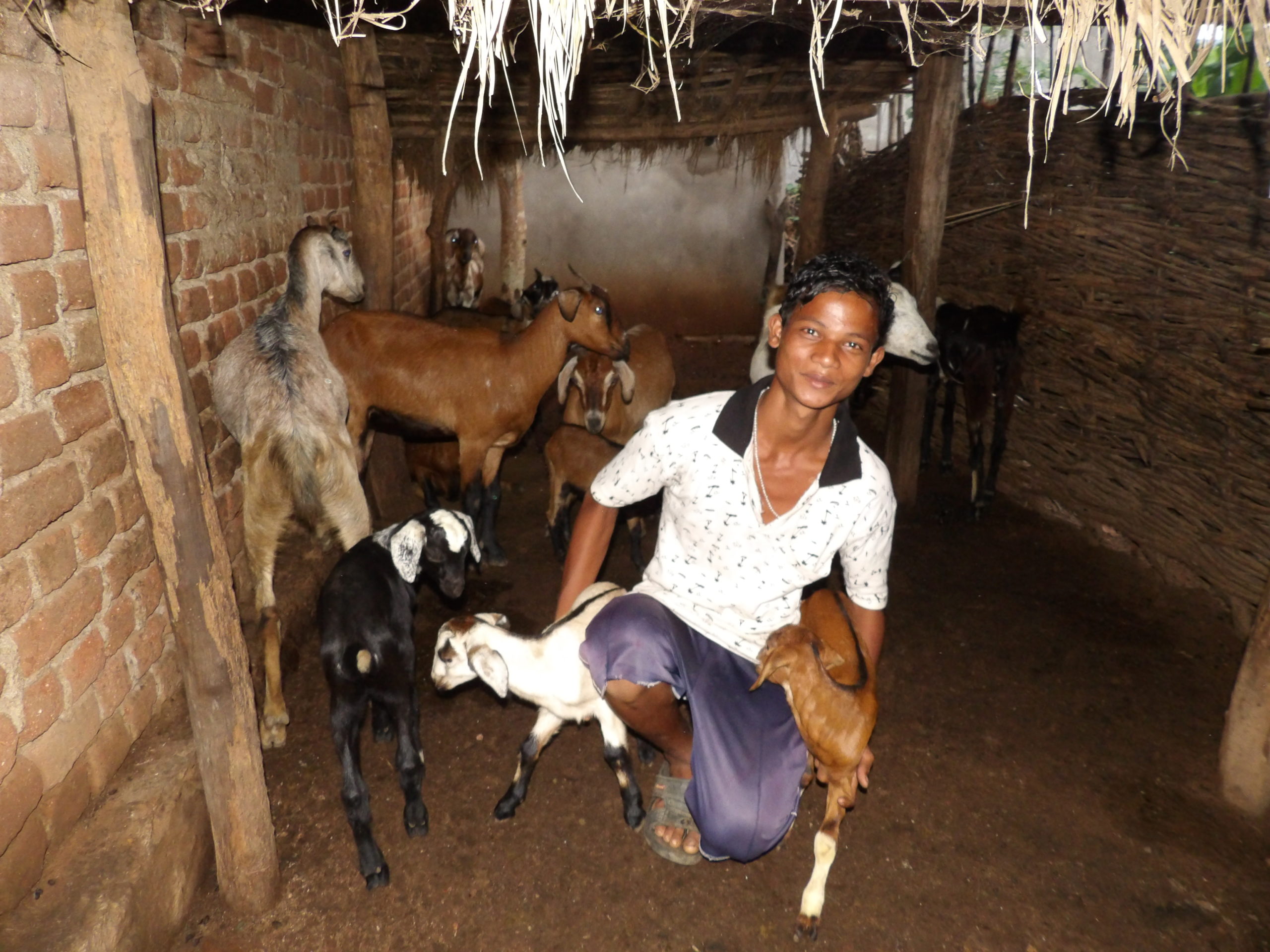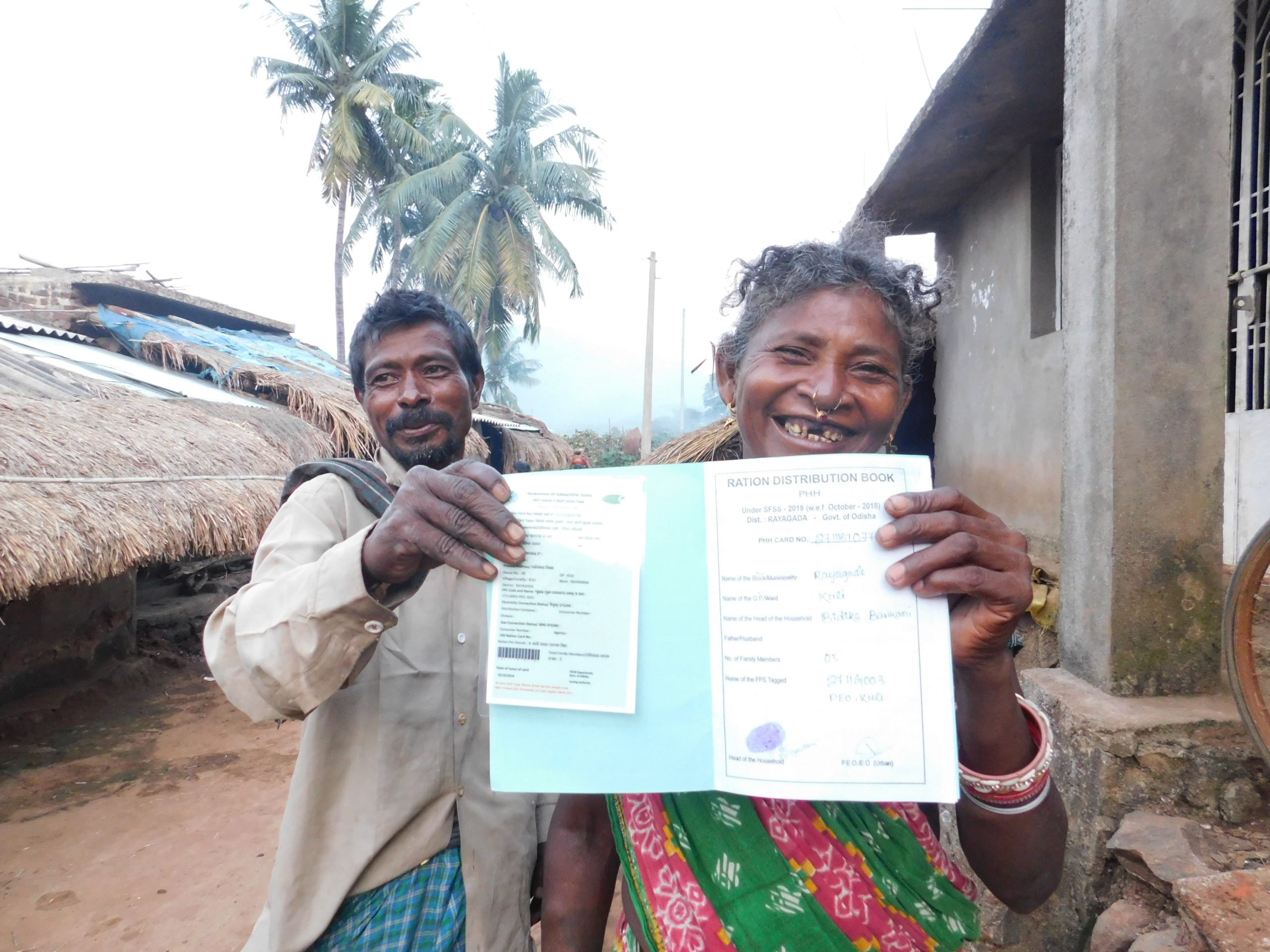Our Work
SANITATION & HYGIENE

Proper hygiene and sanitation prevent the spread of diseases and infections. As the India government is focused in Swachha Bharat mission, MGS provides awareness on cleaning and sanitation.
MGS conducts awareness programs about the benefit of use of toilets and the bad effects of open defecation in all those communities where MGS is working. Through the facilitation of HDFs the communities mobilized to the block office, Mission and Sanitation office, local Rotary club and Outreach International to access the funds to construct the toilets.
Through MGS, toilets are constructed in 9 field program locations. Among the 9 FPLs, 2 FPLs have constructed toilets and bathrooms. MGS not only help the people to access the funds for toilets but ensure the uses of toilets and bath rooms by providing orientation. It benefits those people, who had never used the toilets. Through the toilet projects total 706 households benefited and created hygienic and healthy environment in the communities.
Water

There are many communities who are suffering from many diseases due to not having clean drinking water. So, to get rid of water born diseases there is need for potable water.
MGS ensures the availability of drinking water resources throughout the year in the communities where it works. MGS helps the community people to mobilize with different agencies to access potable water systems. Through MGS facilitation in Kurumpeta, Kuljing, Utkapadu and Kuliguda village, people accessed pipe water systems. Kunjabadi, Khilapadar, kuliguda, Nandabadi village people accessed solar water systems. Tubewell projects were established in Ghodabadi and Kunjabadi village. Through these projects total 3,443 people are getting benefit. Now in these communities people have sufficient clean drinking water and for domestic use.This result also impacted on their families and they are living happily.
Education

Education plays a vital role in shaping the life of people. Education lays the foundation stone for the children. Children have the right to get education.
Lack of education forced children to work as a laborer to supplement their family income. In rural areas sometimes when parents go for field or labour work, the elder children look after the younger siblings and they miss the opportunity to go to the school. To address this issue MGS had 4 NCLP schools from national government. The organization focused on education of the underprivileged children to provide them education and bring them to the main stream. MGS assists Gumiguda school which is funded by the partner organization Outreach International. It is a residential school, where there are 1 to 8 classes with 8 teaching staff and 3 non teaching staff. Every year more than 200 children are getting education. Every year 25-30 students graduate from that school.
Health

MGS has always given priority towards rural population’s access to basic health care and sanitation facilities. To provide both preventative and curative healthcare measures in project area, MGS organized regular health camps and awareness campaigns on a wide range of health issues.
Many of the health problem in the village can be reduced by hygienic health awareness and promotion of hygienic tractions to identify major health problems in these villages. MGS conducts health awareness camps in the target villages. Many parents in these remote areas are not inclined to immunize their children resulting in more numbers of disabilities. These health camps will give more importance to create awareness among the parents to take better care of their children.MGS negotiated with government and private health agencies to provide eyesight health camps in the villages.
Livelihood

Where MGS is working the 80% people are in bellow poverty line and 90% people are tribal. One major issue that they have been facing is insufficient sources of income. 30% people are farmers and 70% people are daily laborers.
They have no sufficient work in the village, they depend on labor work. This affects their income thus the basic needs of the families are not met. Sometimes they go to different states for labor work leaving their families in the village. It affects on family relationship. In order to address this big issue, MGS provides income generating projects like milking buffalo projects, goat raising projects, working animal(oxen) projects.
Through the income generating projects they met their basic needs like food, clothes, medicine, children’s education expenses and improved their houses. MGS also provided capability building of leaders in organizational development and management. The MGS provided opportunity for the group in establishing linkage with other institutions like the Animal Husbandry Office. They have now livelihood opportunities in the village like production of fertilizer from the animal manure and organic vegetable production. They continuously improved IGPs by institutionalization of project systems and mechanisms and sustained capability building activities like training and orientations of members on related topics.MGS focus on how to minimize the possible negative impact of livestock production by conducting seminars on environmental awareness and safety measures in livestock production.
Irrigation

Rayagada is an agriculture oriented district, most of the rural communities of this district are depending upon farming for their livelihood. The communities where we are working are fully depending on rain fall for farming.
They were producing only one time crops in a year and traveling to different states in searching of labour work, it affects on their family relationship. When there is no sufficient rain, they could not able to cultivate their lands. MGS have taken initiative at 3 villages namely – Kurumpeta, Utkapadu and Ghodabadi with the support from Agro office, and Lift irrigation project office, Rayagada. These 3 villages accessed the lift irrigation systems and the community people are getting sufficient water in their farming fields. Now they are producing crops twice in a year and through these projects they increased their income.

The govt. of India and Odisha has many schemes and facilities for the rural and tribal population of our district to uplift these underprivileged populations from poverty.
But during our study in these communities we found that, people are mostly unaware or have lesser knowledge about all these schemes and facilities provided by the government. MGS have taken initiative for consciousness raising and capacity building of the community in all our field locations. MGS is following the Participatory human development process by which we are conducting meetings, encouraging people to practice role-play before mobilization to offices, guiding people to conduct mobilization to different agencies and offices. Through the facilitation of MGS, people from the 9 FPLs accessed different resources from government and non government agencies.
CBO

We build village level capabilities, structures and processes to enable stronger self-governance by the communities. The design of these structures and the principles of the processes ensure that all people are participating and elect their capable leaders to lead.
The Community based organizations take the leadership to influence local government decisions and stake claims to their rightful share in the resources deployed locally. They conduct meetings together and collectively take decision for any action to resolve their issues. MGS provides leadership trainings to develop their capability, skills and knowledge. Through the trainings people and leaders improved their consciousness level on their issues, resource agencies and how to resolve their community issues. Now there are 9 community based organizations in 9 FPLs.
Contact Us
Our motto is to create sustainable and self supportive communities.
Recent News
Ministry of Good Samaritan is a nonprofit organization. PAN : AACTM3843K
Copyright @ 2023 Ministry Of Good Samaritan. All Rights Reserved.












